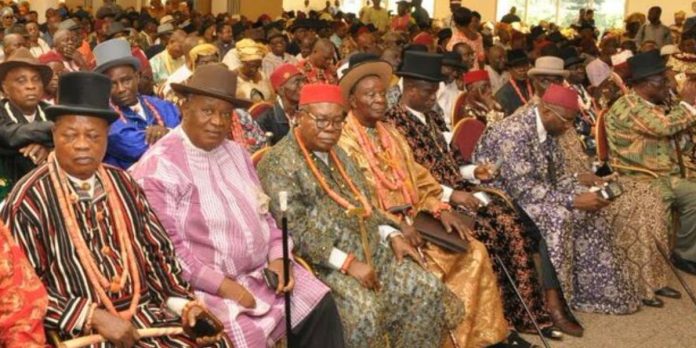In a move that could reshape Nigeria’s political and historical narrative, Ohanaeze Ndigbo has formally demanded N10 trillion in reparations from the Federal Government. This demand follows General Ibrahim Babangida’s recent, albeit belated, assertion that the January 1966 coup was not an Igbo insurrection—a revelation that has long been overdue in redressing historical misrepresentations.
For decades, the Igbo community has shouldered the weight of a historical narrative that unfairly cast it as a principal instigator of Nigeria’s 1966 political upheavals. The consequences of this mischaracterization have been both profound and lasting.
The ensuing counter-coup of July 1966, which targeted Igbo citizens across Northern Nigeria, set in motion a chain of events culminating in the tragic Biafra War—a conflict that claimed the lives of an estimated three million Igbo, predominantly women and children. The scars of that period remain raw even after more than half a century.
As a political analyst with over twenty years of experience observing Nigeria’s turbulent history and evolving political landscape, I view the current reparations demand not merely as a call for financial redress but as an urgent plea for recognition and accountability. The figures quoted—N10 trillion in reparations and a public apology from the highest echelons of power—are emblematic of a deeper struggle for justice and equitable treatment within our federation.
The statement released by Okechukwu Isiguzoro, deputy General of Ohanaeze Ndigbo, underscores that the demand is rooted in decades of systemic neglect and marginalization.
It reflects grievances that go well beyond the financial realm: the Igbo have been persistently sidelined in the national dialogue, politically and economically marginalized, and unfairly burdened with the legacy of a past conflict in which they were unjustly demonized. The historical narrative—now challenged by IBB’s admission—has long been used as a political tool to justify policies and practices that keep the Igbo community on the periphery.
This moment should be seen as both an opportunity and a challenge for the Nigerian state. On one hand, Babangida’s revelation provides a rare opening to reexamine the past and dismantle the myths that have fueled decades of mistrust and discord.

On the other hand, addressing this issue requires a bold commitment from President Bola Ahmed Tinubu’s administration to move beyond rhetoric and engage in concrete actions toward reconciliation. The reparations demand is as much a symbolic gesture as it is a call for substantive redress—a necessary step in acknowledging that the wounds inflicted by historical injustices have not yet healed.
Critically, the compensation demand is also a litmus test for Nigeria’s commitment to national unity. For too long, the exclusion of the Igbo from key political and infrastructural developments—exemplified by the closure of critical assets such as the Calabar seaport and the underdevelopment of international airports in the Southeast—has been a source of enduring discontent.
These are not mere administrative oversights but systemic inequities that have long undermined the Igbo’s full participation in Nigeria’s socio-political life. The demand for reparations and a public apology should therefore be seen as part of a broader quest for restorative justice.
It is an appeal for the nation to confront the painful legacy of past military regimes, particularly the actions of figures like General Yakubu Gowon, whose policies during the Nigeria-Biafra War resulted in untold human suffering. By extending forgiveness to past perpetrators, the Igbo are not seeking endless retribution but rather a fresh start—a national commitment to equity and inclusion.
However, as with all such demands, the road ahead is fraught with challenges. Political accountability in Nigeria has historically been a slippery slope, and there is a legitimate concern about whether the current government has both the political will and the practical mechanisms to meet such a monumental demand.
Financial compensation on this scale would require not only an unprecedented allocation of resources but also a robust framework to ensure that reparations are administered fairly and effectively, addressing both the tangible and intangible losses suffered by the Igbo nation.
Furthermore, this development raises broader questions about how Nigeria reconciles its complex and often painful history. Will this be an isolated concession, or can it spark a wider national dialogue on the legacies of past injustices across all ethnic lines? The answer to this question will have profound implications for the future of Nigeria’s democracy and its efforts toward achieving genuine national unity.
In conclusion, the N10 trillion reparations demand is much more than a financial claim—it is a clarion call for historical reckoning and a testament to the enduring resilience of the Igbo people. If met with genuine political commitment, it could mark the beginning of a transformative process of restorative justice, paving the way for a united Nigeria where historical wounds are acknowledged and healed.
For now, the demand stands as a potent reminder that reconciliation is not merely about turning the page on history, but about ensuring that every chapter is written with truth, justice, and an unwavering commitment to equity.






































Discussion about this post